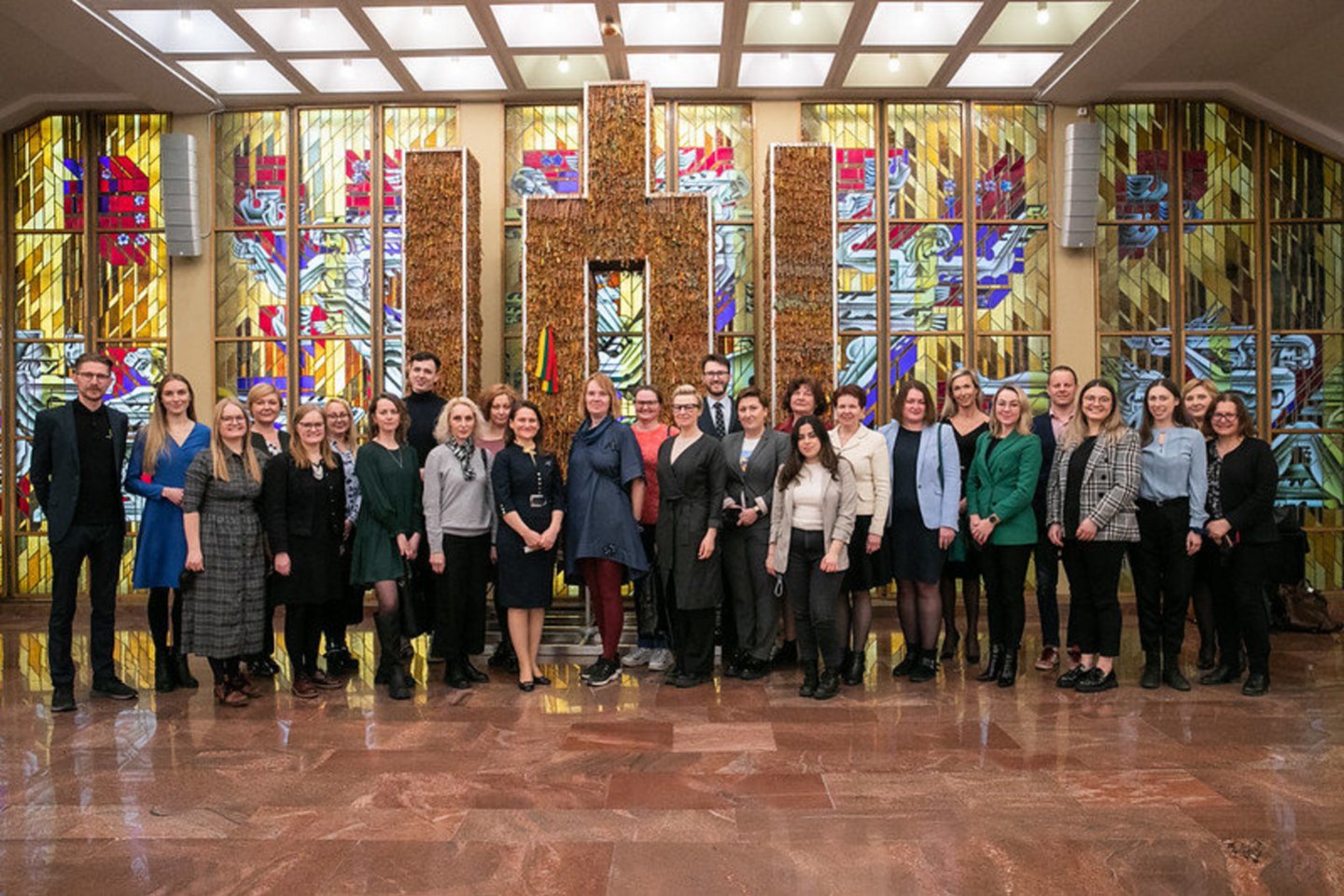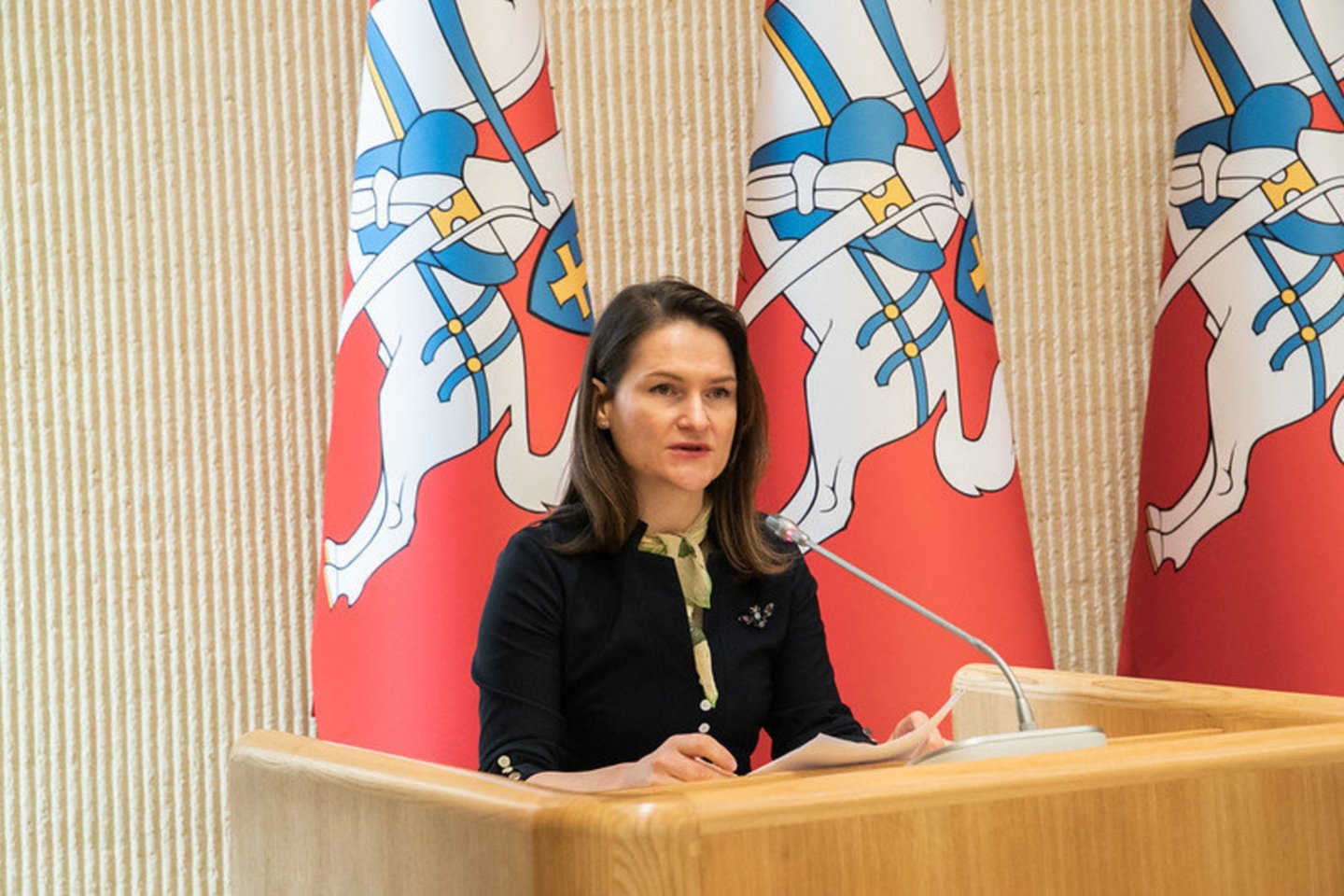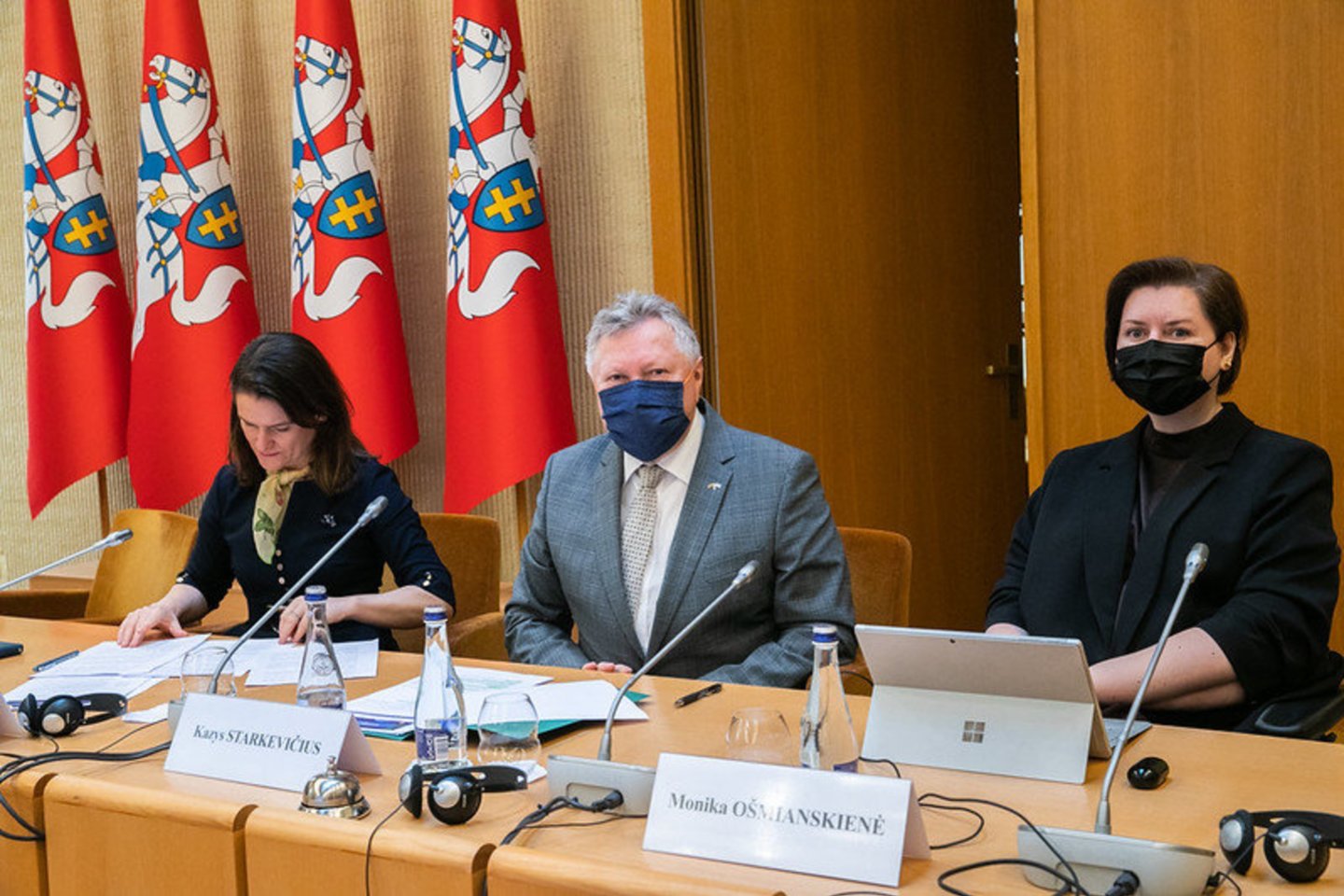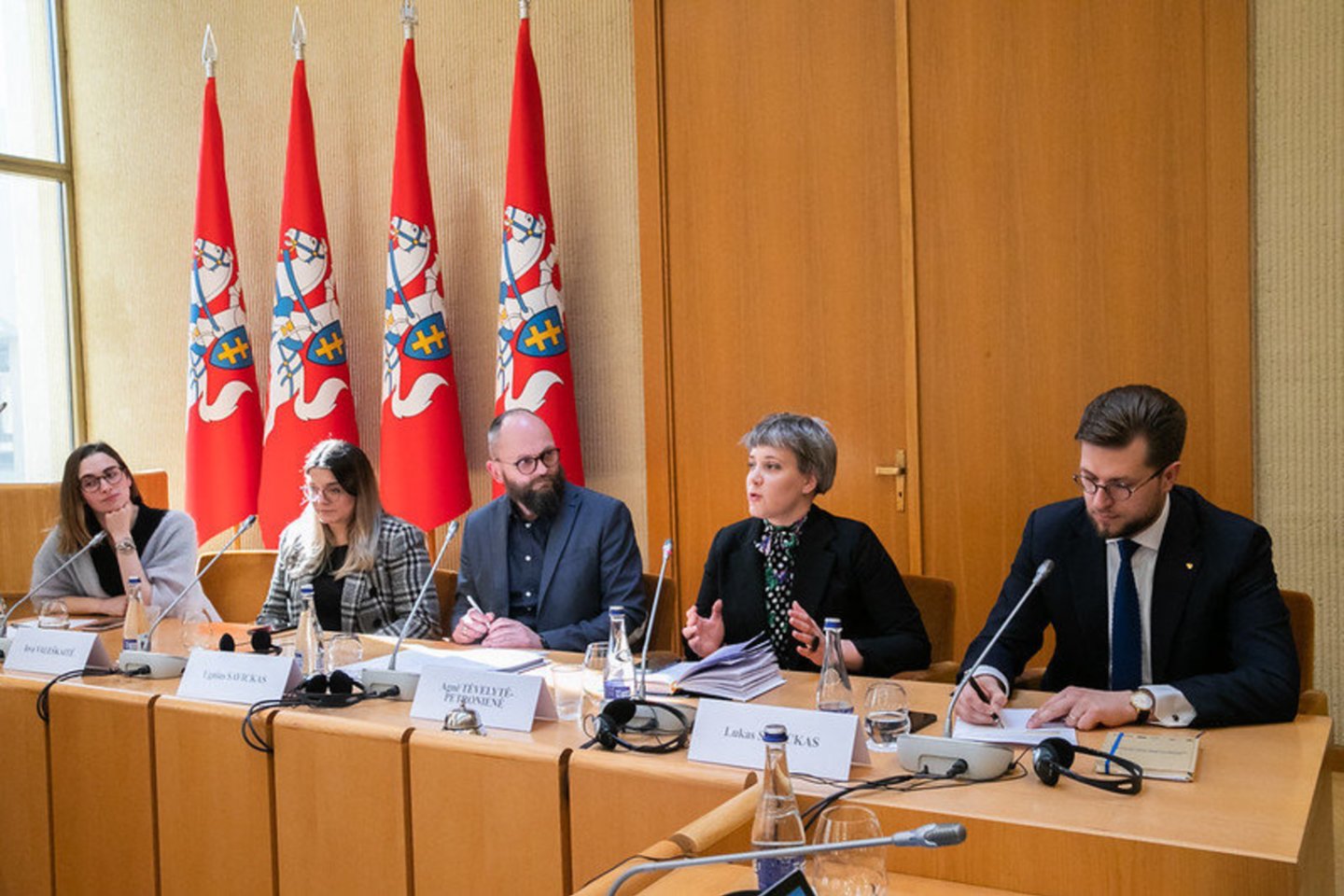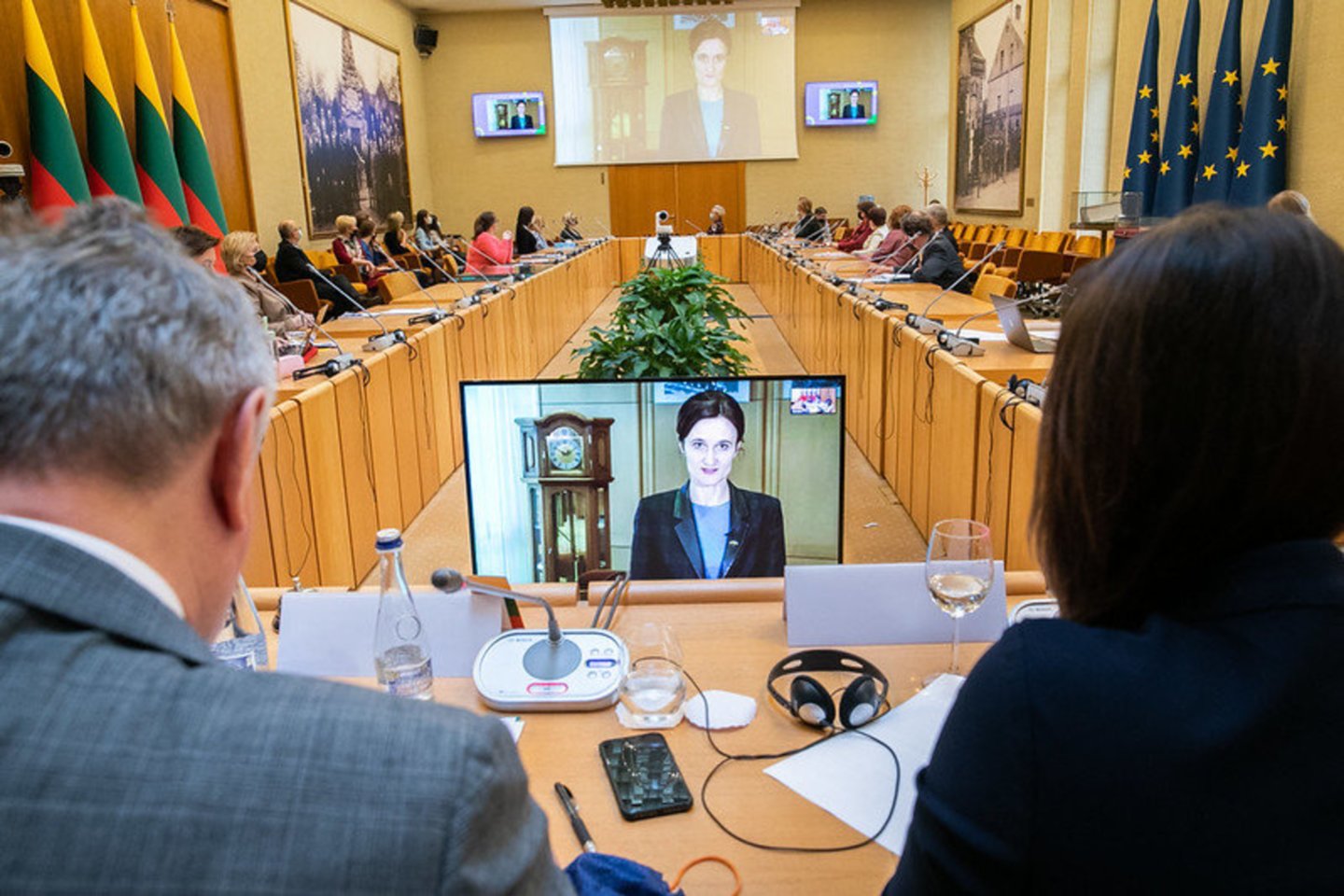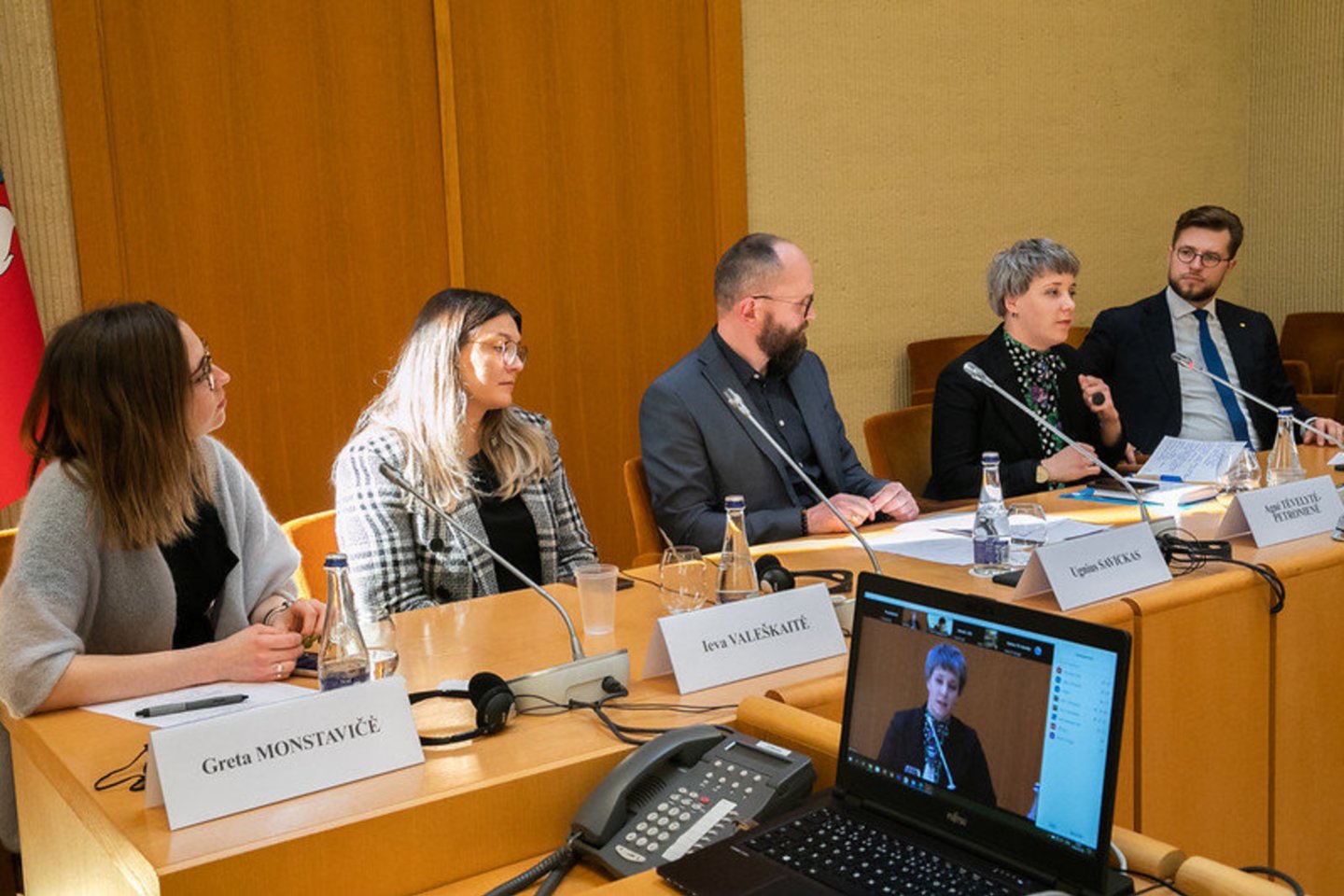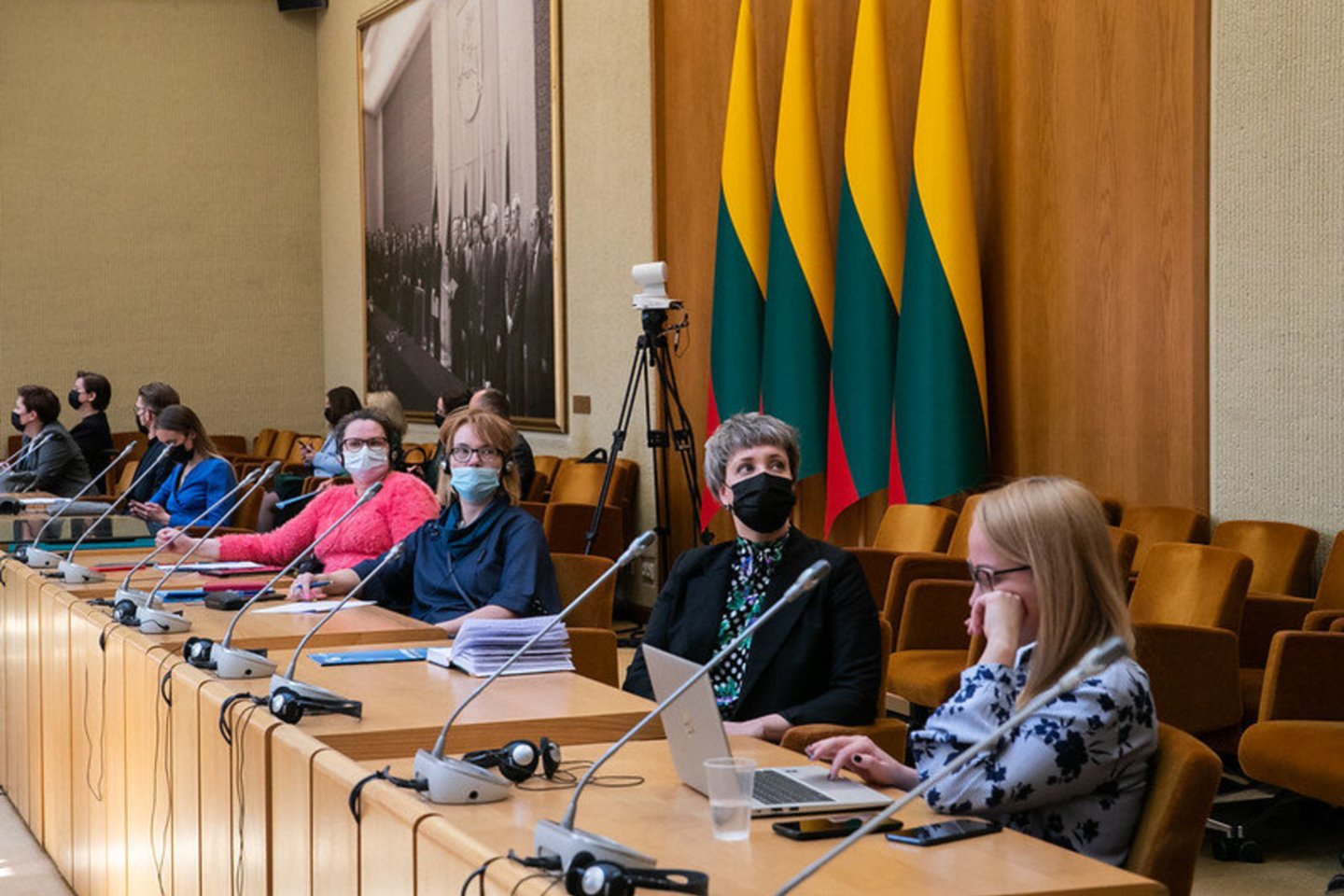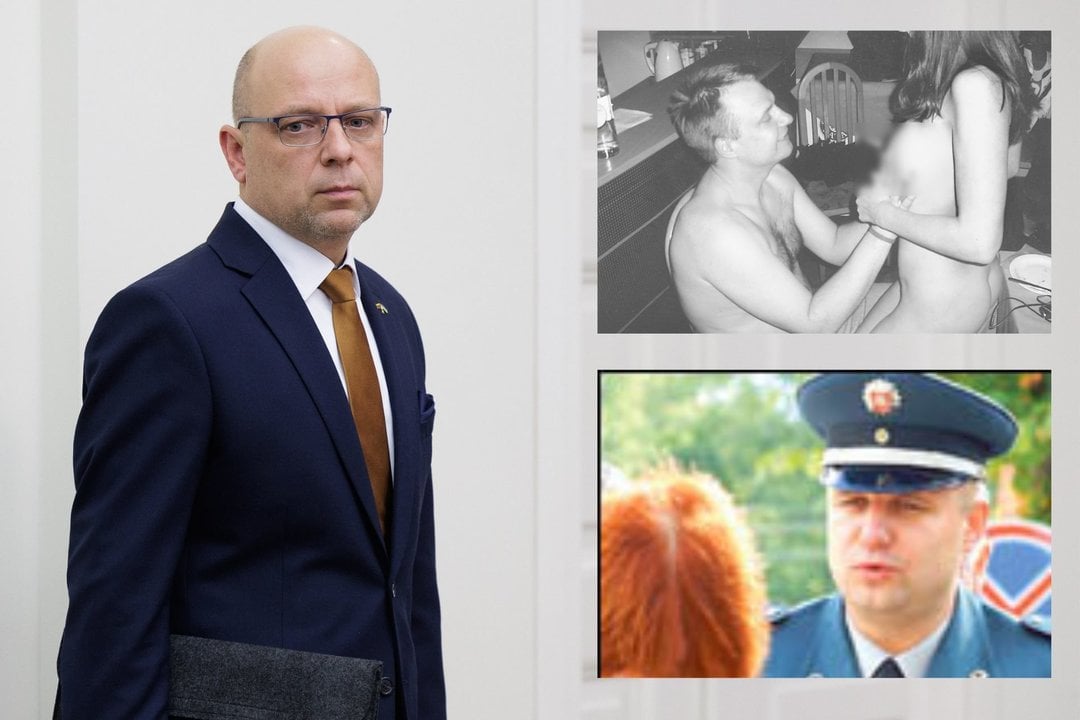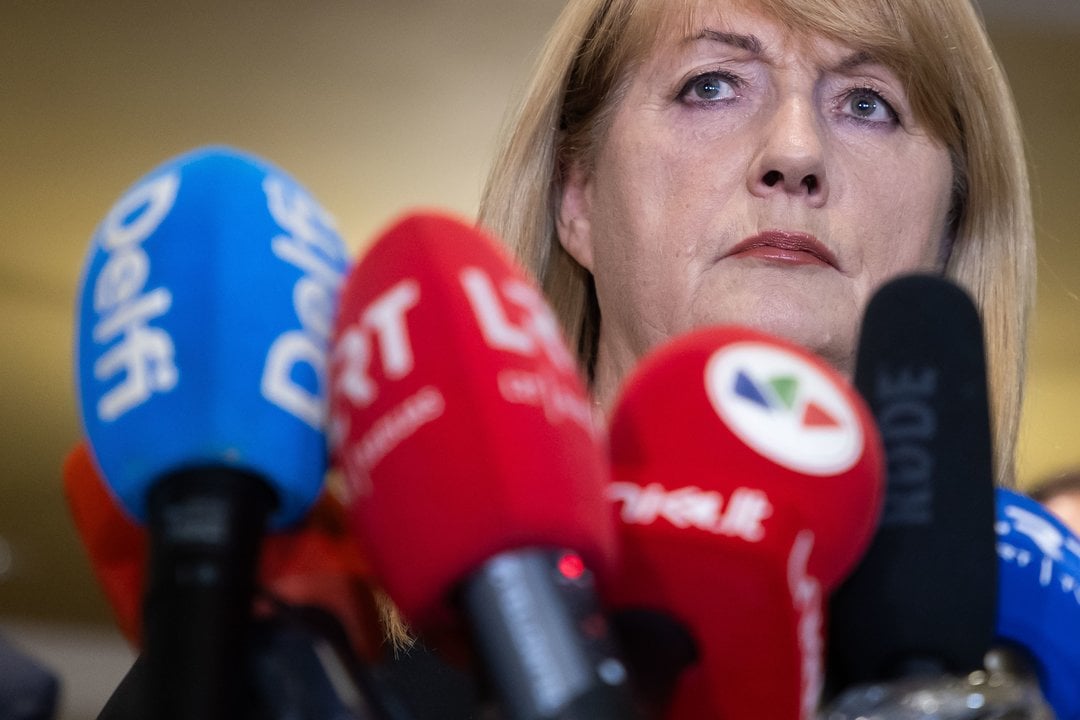European Commissioner for Jobs and Social Rights Nicolas Schmit welcomed the Lithuanian social business forum: „I am delighted that the Seimas of the Republic of Lithuania is hosting the Social Business Forum to discuss aspects of the social economy in Lithuania and across Europe.“
Welcoming the forum participants, Viktorija Čmilytė-Nielsen, Speaker of the Seimas, stressed that dialogue and a collaborative and supportive environment are crucial for the social business ecosystem. The Speaker of the Seimas said: „Lithuania has the potential to become one of the most favourable ecosystems in the EU, which would provide excellent conditions for social business start-ups to establish themselves and develop their activities and effectively address societal issues challenges.
„We plan to re-envision social business. We will strive to take a fresh look at the development of social business in Lithuania, taking into account the ecosystem's needs,“ said Minister of Economic and Innovation Aušrinė Armonaitė.
In the first session, parliamentarians discussed creating the right conditions for social business to flourish. Policies and legal frameworks are key to creating the right environment for social enterprise to flourish. This includes taxation, public procurement, and state aid systems, which must be adapted to the needs of the social economy.
„Today, it is even more important to promote the social business sector as organisations in this sector seek, find and implement solutions to pressing problems. Experience in other countries shows that investments in this sector always pay off, as it is widely recognised that the potential of social business is manifested in solving a vast range of problems affecting society,“ said Kazys Starkevičius, Chairman of the Seimas Committee on Economic Affairs.
Monika Ošmianskienė, a Member of the European Affairs Committee of the Seimas, noted that Lithuania already has excellent, successful examples of social enterprises that are already bringing social benefits. MP Ošmianskienė said: „I believe that our society is mature enough to care about post-modern values and that social responsibility is becoming as important as a full stomach. Therefore, it is important to assess the prospects of social economy in Lithuania and make the much-needed breakthrough in Lithuania.“
„Social entrepreneurs are the silent leaders of change in our society. How do we recognise them? They are the ordinary people around us who, having discovered their calling, quietly but with a burning spirit, do good deeds for others, for nature and, of course, for „Invisible Lithuania.“ I have met such wonderful people in the Lithuanian Social Business Association. It is a great honour to work for these heartfelt and strong-willed people,“ said Viktorija Braziūnaitė, Head of the Lithuanian Social Business Association.
Ruth Paserman, the Director of the European Commission's Directorate-General for Employment, Social Affairs and Inclusion, presented the Social Economy Action Plan, which sets out measures to help boost the development of social business, including the creation of a European Centre of Excellence for Social Innovation and Competence in Lithuania.
Andželika Rusteikienė, founder of the Lithuanian Social Business Association and Director of Junior Achievement Lithuania, welcomed Lithuania's achievements in the field of social business over the last decade.
The first session of the forum also featured speeches by Katrin Langensiepen, Member of the European Parliament (Germany), Laima Mogenienė, Member of the Seimas Committee on Economic Affairs, Patrizia Toia, Member of the European Parliament and co-chair of the Group on the Social Economy (Italy), Emanuelis Zingeris, Chair of the Group for Interparliamentary Relations of the Seimas of Lithuania and the United States of America.
„Interwar Lithuanian towns were more socially sensitive. Merchants and manufacturers shared their profits wholeheartedly with social organisations. The social sensitivity of today's businessmen and industrialists would show that Lithuania is truly a country of the Western world,“ said Mr Zingeris.
Many speakers stressed that this forum is the beginning of an inclusive, sustainable and open dialogue between leaders and decision-makers in the social business ecosystem. The dialogue will continue in smaller working formats to agree on a vision and concrete action plan to develop this sector in Lithuania. This will also help better respond to social entrepreneurs' needs and build a more sustainable and inclusive economy in our country.
During the second session, representatives of the ministries of Economy and Innovation, Social Security and Labour, and Agriculture from Lithuania and France shared information on the opportunities for social business start-ups and expansion.
The European Commission aims to increase its support for the social economy to €2.5 billion. In the forum's second session, speakers provided information on effectively increasing opportunities for setting up and expanding social businesses and promoting entrepreneurial competencies.
Presentations were made by Vytautas Šilinskas, Vice minister of social security and labour, Olivia Gregoire, French Deputy minister for the economy responsible for the social economy, and Egidijus Giedraitis, Vice-minister of agriculture.
„The Ministry's decisions are implemented by Versli Lietuva, which works particularly closely with the ecosystem. [...] The direction we plan to continue moving in is to integrate social business horizontally, adapting existing tools to make them convenient and useful for the social business ecosystem.“
In the third session, the following social entrepreneurs from Lithuania and other countries spoke and shared their best practices and impact stories: the CEO and co-founder of Kidnovation, Imad Elabdala, and the CEO and co-founder of Memby/Digiklase (EdTech start-up), Eimantas Bekėža, who reported that he had created a learning platform for Ukrainian children within a couple of weeks. „The pilot version was launched last week, and already 250 Ukrainian schoolchildren have used it and are learning. We see that we can accommodate up to 80,000 pupils,“ said Mr Bekėža.
Ieva Vaitkevičiūtė, Founder and CEO of Mindletic, stressed that „it is very important to identify the importance of social entrepreneurship and to reduce the financial burden on socially impactful businesses, at least at the beginning of the business creation process“.
The forum concluded with a discussion in which leaders from the Seimas, the Lithuanian Ministry of Economic and Innovation, social business, investors, and international organisations discussed the prospects and importance of developing the social business sector for the Lithuanian economy and for solving the challenges facing society.
The discussion included Monika Ošmianskienė, member of the Seimas Committee on European Affairs, Lukas Savickas, member of the Seimas Committee on Economic Affairs, Ieva Valeškaitė, vice minister of economy and Innovation, Sofia Breitholtz, head of Reach for Change, Víctor Meseguer, director of social economy Europe, Greta Monstavičė, CEO and co-founder of Katalista Ventures, and Gavin Armstrong, president and CEO of Lucky Iron Fish, who presented his company's experience in Canada, how it has been able to attract investment and the support provided by the Canadian government to social businesses: „Businesses that make a social impact not only receive special certifications but are also guaranteed government support for small and medium-sized enterprises.“
Agnė Tėvelytė – Petronienė, director of the organisation Lyderių Karta [Generation of Leaders], noted that the right legal and tax framework should encourage the business model and that today, there is still a lack of institutional recognition of social business: „My main wish for all authorities and social businesses is to have faith, trust and freedom to act because social business is a good helper and partner.“
Víctor MESEGUER, Director of the Social Economy Europe emphasized the need to align with the European Union initiatives, give more visibility to social entrepreneurs and work much more together on a European scale
The forum was rounded out by Dr Ieva Adomaitytė-Subačienė, a researcher at the Institute of Sociology and Social Work, Faculty of Philosophy, Vilnius University, and Viktorija Bražiūnaitė, the Head of the Lithuanian Social Business Association.
Lithuania's ambition to become one of the most favourable ecosystems for social business and social innovation in Europe is a reality. „We have the potential, the determination and the trust of the European Union and the finances to do so. So this is both an opportunity and a responsibility. I am delighted that all the players in the social business ecosystem have finally come together around one table. And this is just the beginning of an open and sustainable dialogue about what kind of social business we want and what we will do about it together. We are looking forward to working together and co-creating together,“ said V. Bražiūnaitė, summarising the forum results.
The event was organised by the Seimas Committee on Economics together with the Lithuanian Social Business Association and Monika Ošmianskiene, member of the Seimas Committee on European Affairs, in cooperation with the Representative Office of the European Commission in Lithuania, the Public Enterprise Versli Lietuva, the Nordic Council of Ministers' Office in Lithuania, the organisations NVO Avilys, Gerinorai.lt, Social Economy Europe, the European Network for Social Integration (ENSIE), Katalista Ventures, the Institute of Sociology and Social Work at the Faculty of Philosophy of Vilnius University, and the Anna Lindh Foundation Network in Sweden.
